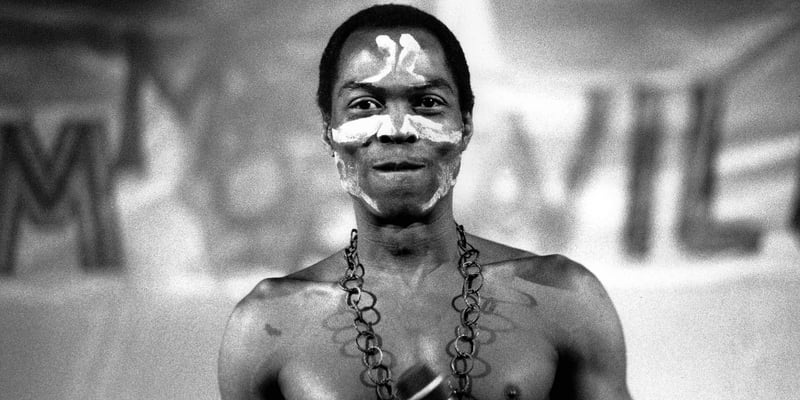The vibrant beats of Afrobeat not only compel bodies to dance but also encapsulate a rich tapestry of Nigerian history, culture, and the relentless struggle for independence. Emergent from the bustling streets of Lagos, Afrobeat transcends mere musical genre to embody the spirit of resistance, social critique, and the celebration of Nigerian and African identity. Its evolution closely mirrors the nation’s journey from colonial subjugation to self-determination, weaving a complex narrative of cultural reclamation and political activism.
The Genesis of Afrobeat: Cultural Synthesis and Rebellion
In the wake of Nigeria’s liberation from British colonial rule in 1960, a newfound sense of nationalism ignited a cultural renaissance. Music, intrinsically woven into the fabric of Nigerian society, became a pivotal medium for expressing this burgeoning national consciousness. Afrobeat emerged from this crucible, drawing inspiration from a diverse soundscape:
- Highlife’s Legacy: With its captivating melodies and rhythmic sophistication, Highlife laid the foundational beat for Afrobeat’s later complexities.
- Jazz’s Influence: The improvisational prowess and harmonic richness of American Jazz infused Afrobeat with a layer of dynamic intricacy.
- Yoruba Traditional Music: The pulsating rhythms and vocal interplay of Yoruba music lent Afrobeat its heart, grounding it firmly in Nigerian soil.

Fela Kuti: The Heartbeat of Afrobeat
At the epicenter of Afrobeat’s birth stood Fela Anikulapo Kuti—musician, revolutionary, and the genre’s unequivocal pioneer. Upon his return from London’s music conservatories, Fela sought to craft a sound that was unabashedly African, blending musical influences with incisive socio-political commentary. His music, characterized by hypnotic rhythms and vehement lyrical critiques, became synonymous with resistance against corruption, authoritarianism, and the lingering shadows of colonialism.
The Sound of Resistance: Afrobeat as Political Activism
For Fela and his followers, Afrobeat was more than entertainment; it was an act of rebellion. The Shrine, Fela’s nightclub and communal hub, stood as a bastion of protest, where the night air was thick not just with music but with the fervor of political discourse. Fela’s lyrics, delivered in a mix of Yoruba and English, transcended language barriers to speak to universal themes of freedom, justice, and equality.
Pan-African Vibrations: Spreading the Afrobeat Message
Afrobeat’s resonance was not confined to Nigeria. It echoed across borders, becoming a soundtrack for the Pan-African movement, advocating for unity, self-determination, and the celebration of African heritage. Fela’s music, with its calls for societal change and African solidarity, found echoes in the hearts of listeners continent-wide, making Afrobeat a rallying cry for liberation movements across Africa.
Legacy and Renaissance: Afrobeat’s Continuing Journey
Fela’s passing in 1997 marked the end of an era but not the extinguishing of Afrobeat’s fire. The torch was passed to a new generation, artists who inherited Fela’s revolutionary zeal and musical genius, evolving the genre while staying true to its roots. This modern iteration sees Afrobeat infused with contemporary genres, expanding its reach and ensuring its relevance in today’s global music landscape.
Today’s Afrobeat: A Global Phenomenon
In the present day, Afrobeat (and its offshoots, collectively termed Afrobeats) captivates a global audience. Artists like Burna Boy and Wizkid, while infusing their music with modern influences, maintain Afrobeat’s essence—its deep connection to Nigerian culture and its legacy of activism. Their global success is a testament to Afrobeat’s enduring appeal and its capacity to adapt and thrive in a changing world.
More Than Music: Afrobeat’s Cultural Significance
Afrobeat remains a potent symbol of resistance, a beacon of African identity, and a bridge for cultural exchange. Its rhythms tell stories of past struggles and present challenges, reminding listeners of the power of music to inspire change and foster unity.
The Future Beats: Afrobeat’s Unwritten Symphony
Looking forward, Afrobeat’s journey is far from over. As new voices emerge, so too will novel interpretations of this dynamic genre. Afrobeat will continue to evolve, echoing the pulse of Nigeria, Africa, and the world—celebrating freedom, challenging injustice, and uniting diverse peoples through the universal language of music.




